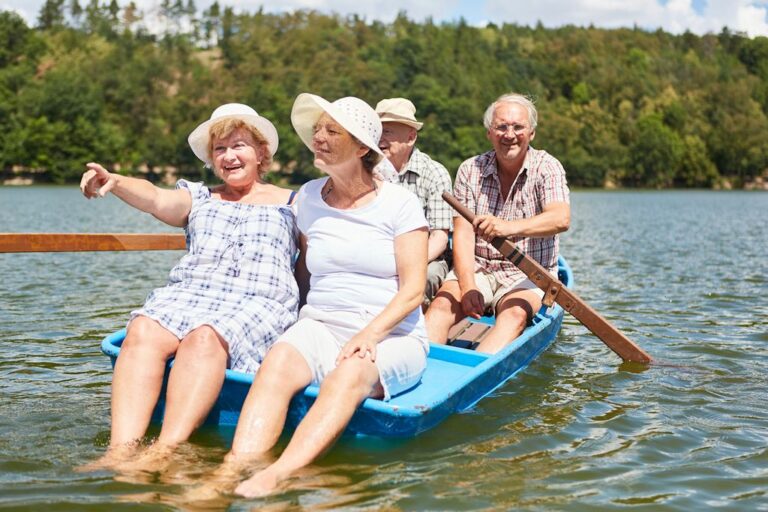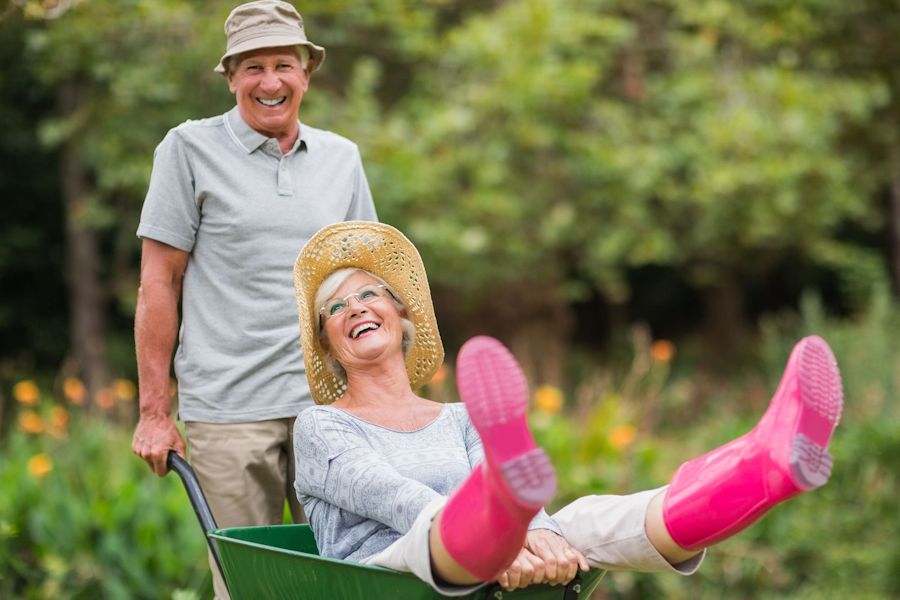
Take Care in Extreme Summer Heat
There’s a lot to love about summer. But the high temperatures that come with summer can be hazardous to our health, especially as we get older. Lots of things change about our bodies as we age. One of those things is how well our bodies are able to adjust to extreme temperature changes in the environment. Older bodies do not adjust to heat as quickly as younger bodies and have to work a lot harder to cool down in hot weather. That means those of us in our “seasoned” years have to pay attention, and be careful, when temperatures spike.
Extreme heat can be dangerous for anyone, but the older we get the more vulnerable we become to heat-related issues like dehydration, heat exhaustion, and heat stroke. The human body becomes dehydrated when it is losing more fluid than is being consumed. When dehydrated, a body doesn’t have enough fluid to function normally. Dehydration is common in older people. The ability to detect thirst declines with age, which means we can’t always depend on thirst to tell us when we need to take in more fluid. It’s important not to wait until we’re thirsty to drink a nice tall glass of water on a hot day.
If our bodies are already struggling to adjust to extreme heat and become dehydrated as well, it can very easily lead to heat exhaustion, a condition that happens when the body’s temperature rises too high. If heat exhaustion is allowed to go too far, it can lead to heat stroke and heat stroke is very serious. In fact, heat stroke can be fatal. Symptoms of heat exhaustion and heat stroke are listed below.
As we get older, we must be vigilant about protecting ourselves and take good care of our bodies when summer temperatures rise. We have to pay attention to weather reports and heed heat-advisory warnings. We have to remind ourselves not to push our bodies in hot weather. We have to remember how our bodies have changed and keep in mind that it’s may not be smart or safe to do some of the things we used to do on hot summer days in our youth. And we have to know the signs to look for that may signal a heat-related problem and recognize when medical attention is needed.
HEAT EXHAUSTION
What to look for…
- Heavy sweating
- Cold, pale, and clammy skin
- Tiredness or weakness
- Dizziness
- Headache
- Fainting (passing out)
- Fast, weak pulse
- Nausea or vomiting
- Muscle cramps
What to do…
- Move to a cool place
- Loosen your clothes
- Put cool, wet cloths on your body or take a cool bath
- Sip water
- Get medical help right away if you are throwing up, your symptoms get worse, and/or your symptoms last longer than one hour
HEAT STROKE
What to look for…
- High body temperature (103°F or higher)
- Hot, red, dry, or damp skin
- Fast, strong pulse
- Headache
- Dizziness
- Nausea
- Confusion
- Losing consciousness (passing out)
What to do…
- Call 911 right away. Heat stroke is a medical emergency
- Move the person to a cooler place
- Help lower the person’s temperature with cool cloths or a cool bath
- Do not give the person anything to drink
Source: Center for Disease Control and Prevention


Age Adds Flavor
We are not old, we are seasoned!
Don’t forget to visit us on FACEBOOK!
